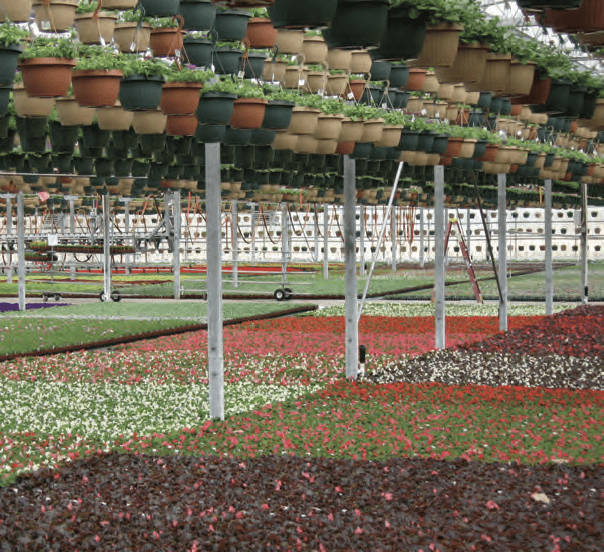
Technically Speaking: The Shade-Avoidance Response
Most plants can tolerate a wide range of light environments. They use different receptors, called photoreceptors, to perceive the different dimensions of light: intensity (or quantity), quality (or spectrum), and duration (or photoperiod). Photoreceptors then regulate the biosynthesis of different compounds that control plant attributes including leaf size, thickness, and coloration; branching; stem elongation; and flowering.

Plants are innately competitive. When other plants are nearby, their photoreceptors detect changes in the light environment and modify their growth in an attempt to out-compete their neighbors. This phenomenon is called the shade-avoidance response. Understanding this response can help growers to promote or prevent this response, depending on the growth desired.
Shade-avoidance signals. Two major changes occur when plants are shaded (or encroached) by others: light intensity decreases and the light spectrum changes. The decrease in light intensity depends on the density of the plant canopy overhead as well as the size of adjacent plants. Plant shading decreases the absolute amount of light, but the magnitude of that decrease varies by the color, or waveband, of light.
When a light particle (a photon) strikes a leaf, it can be absorbed, transmitted or reflected. Most photosynthetic light (blue, green, and red light) is absorbed by leaves, and a relatively small percentage is reflected by or transmitted through them. In contrast, leaves absorb less far-red light and more of it is reflected or transmitted to other leaves. Therefore, plant shading decreases the ratio of red light to far-red light, which is the second signal of the shade-avoidance response.
Shade-avoidance responses. When plants perceive shade signals, they alter their growth to increase light interception. New leaves increase in size and are thinner, and petioles and stems elongate. Growth of the primary stems increases and branching is suppressed. Therefore, most plants grown under shade (or with shade-avoidance signals) are less compact and have thinner stems and fewer branches.
The magnitude of the shade-avoidance response increases as the shade signal increases. In other words, extension growth increases as the light intensity decreases and/or the red-to-far-red ratio decreases. Virtually all types of crops have a shade-avoidance response, but the response is stronger for plants that grow best outdoors under high light compared with shade-tolerant crops.
Implications in controlled environments. The shade-avoidance response is triggered by low light intensity, close plant spacing, overhead hanging baskets, and lighting fixtures that emit at least a modest proportion of far-red light. Supplemental greenhouse lighting usually emits little (or sometimes no) far-red light. In contrast, the light emitted by some low-intensity “flowering lamps” intentionally includes the far-red spectrum. This is because the combination of red and far-red light is most effective at regulating the flowering of daylength-sensitive crops during light-limiting conditions. Therefore, growth under these types of LED fixtures, or incandescent bulbs that also emit a lot of far-red light, will display some of the shade-avoidance responses.
Generally, shade-avoidance signals can decrease the crop quality of full-sun ornamentals. The effect is less on shade-tolerant plants (begonia, coleus, ferns, heuchera, impatiens, etc.) but can be noticeable when the signals are strong (e.g., under a dense canopy of ferns). The shade-avoidance promotion of extension growth can be countered by applications of plant growth retardants and/or other high-suppressing techniques, such as a cooler day than night, also known as –DIF. However, since light is the energy source for photosynthesis and thus growth, nothing can be done to overcome low-light conditions (other than supplemental lighting).
What does shade avoidance mean for the commercial production of greenhouse crops?
- Maximize greenhouse light transmission during light-limiting periods.
- Avoid placing hanging baskets above crops from late autumn to early spring.
- Place shade-tolerant (not high-light) plants under baskets whenever possible.
- More height control may be needed when plants are grown under baskets or flowering lamps.
Above, figure 1, hanging baskets decrease the light intensity and the ratio of red to far-red light, which trigger the shade-avoidance response to crops below.


 Video Library
Video Library 




















